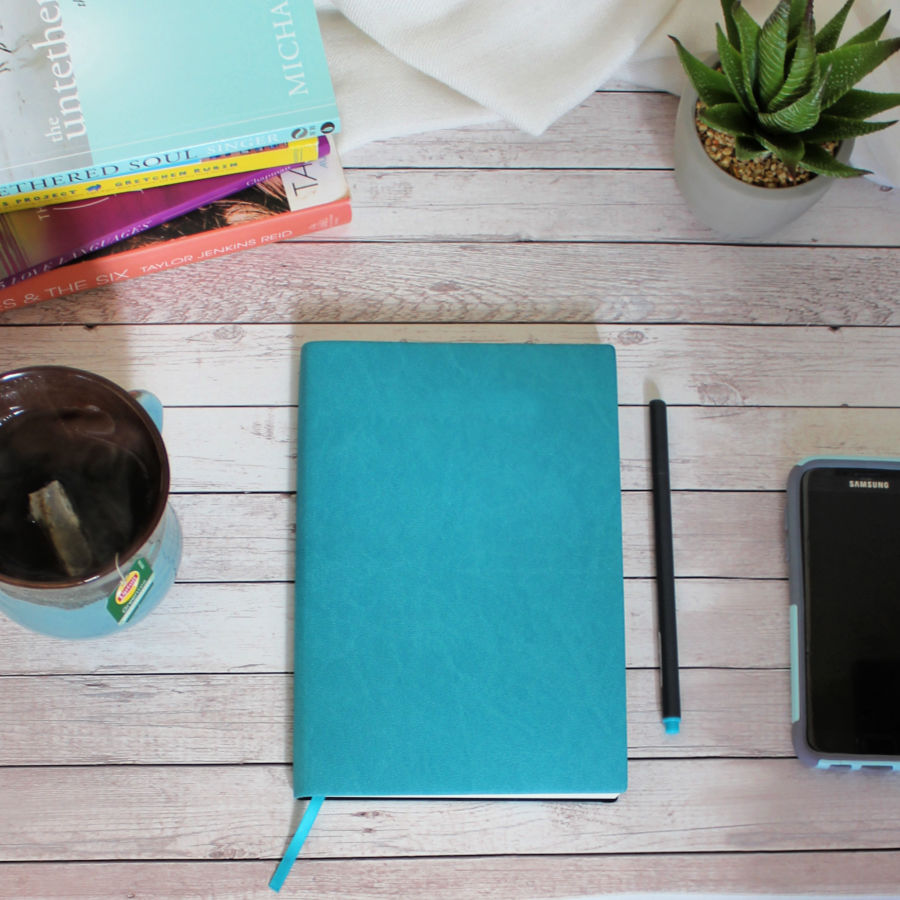I’ve talked about how reading books for fun is very new to me, and thanks to some newfound self-discipline, it’s become a very rewarding routine. To keep this literary party going, one of my 2020 goals is to read at least 12 books this year. This was also my goal last year, but in addition to the 12-book goal, I’ve decided to start a book journal.
While I’ve learned how to make reading a priority in my daily life, I’ve noticed a problem: I don’t retain the information very well. After spending countless hours making my way through so many books, it’s disappointing to look back even a month later and think, “Why did I like that story so much?” Or, “What was it that made me feel so inspired when I read that?”
I think part of my problem is I’m focused on reaching my 12-book goal that I move onto the next book so fast. Between that and my general issue of not retaining information well, a book journal seemed like a practical way to work on this.

It hasn’t even been a full month since I’ve started it, but I’m already seeing the benefits of it. I’ve had a shockingly productive January so far with my reading. I’ve finished one shorter book and am halfway through two other books (a book club pick and a personal one).
The first book I was really inspired by, so I’ve reviewed my notes a few times since then just to revive the feelings I had while reading it. And now, since I’m reading two books at once, it’s been especially helpful for keeping the information straight, while also helping me retain all of what resonated with me so far.
Since so many books have faded in my memory over the past few years, it’s made me want to re-read a lot of them. But how am I supposed to experience new stories if I have to keep re-reading the same ones over and over? That’s a big reason why I’ve become such a fan of keeping a book journal.

Instead of having to re-read a full book again, I can just review my old notes from it to remember all the goodness. Then again, when I really love a book, I sometimes just read it again because I want to. It’s nice to have the option of reading notes vs. the whole thing, though.
If any of this sounds familiar to you, and you also want to remember books better, I highly recommend putting forth the extra effort of keeping a book journal. Yes, it’s definitely more work and can get time consuming (I need to dial back my note-taking a bit, but #inspired.) But it can be SO helpful. You’re doing the work of reading a book anyways, so you might as well make it count by remembering it!
To help you create your own book journal and keep the magic of each story going, here are some things I’d suggest that have helped me:
- Write as you go through the chapter if it’s especially inspiring. Being able to add quotes from the text will help revive the story in your mind later.
- Read back through the previous chapter’s notes before you begin the next one, to really help you remember the details that stuck out to you.
- Divide your notes by chapter and add page numbers to random notes, so if you need to refer back to the original text, you can easily find where it’s at in the book.
- Write as much or as little as you want, but write at least something down after each chapter while the details are fresh in your mind.
- Leave a blank space at the end of each chapter if you want to reflect on it later. I’ve been doing this with my book club pick, because I have a feeling I’ll want to add more as we eventually discuss the book.
Instead of buying a new notebook for my book journal, I picked up an old bullet journal I started and didn’t finish. So in addition to having a nice moleskin notebook, I also have a pack of colorful pens that helps me decipher which book is which (first book is in green, second is purple, third is blue). It’s the little things.
Aside from when you were in school, have you ever taken notes on a book you’ve read to help you remember it?
Do you like reading for pleasure? Or do you struggle with making it happen? (If you’re the latter, check out my tips for how to make yourself read more.)




